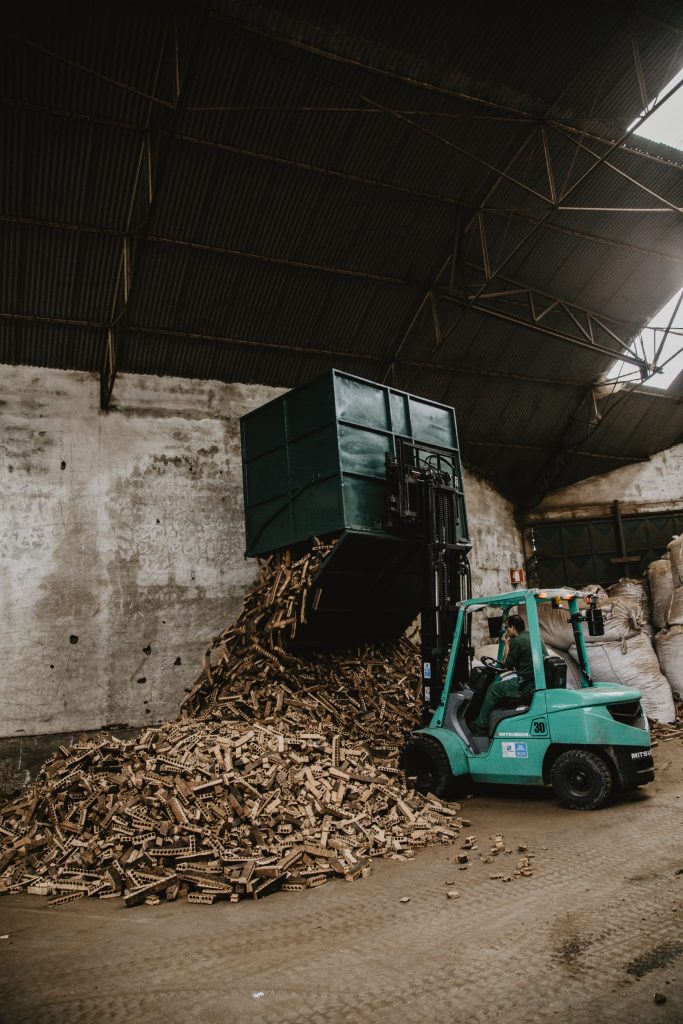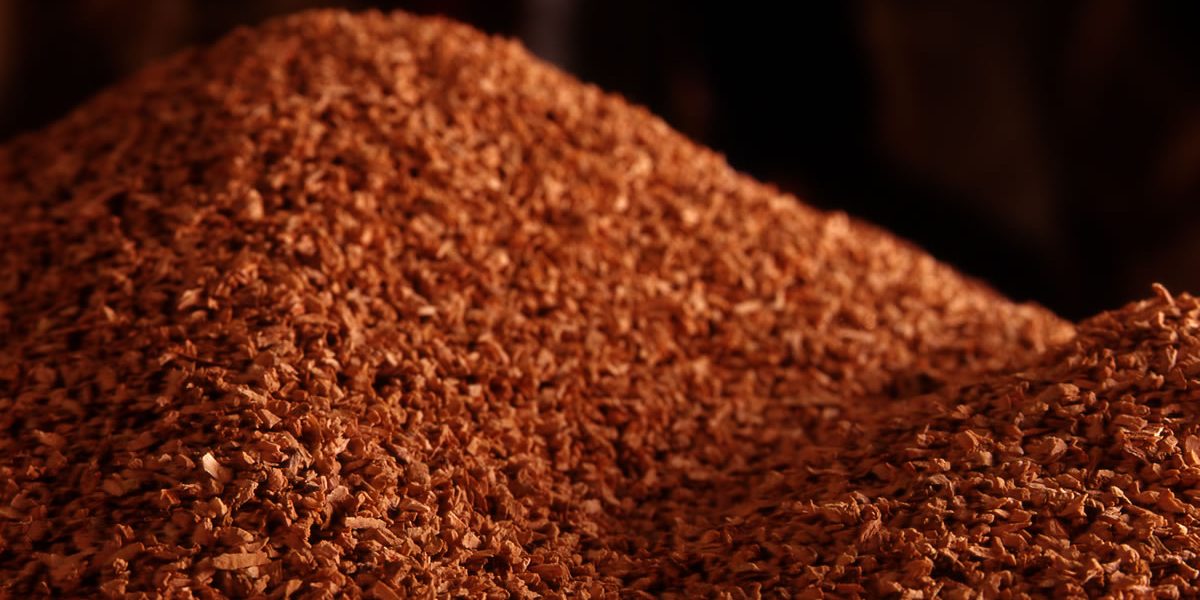The cork sector in general is going through a transition at the moment, principally driven by a shift in demand for agglomerated wine corks in place of natural corks, but there are other changes that are happening in the cork industry and here we are going to look at how demand and production of cork granules is changing in 2024.
The traditional source of cork to make granules is from the off-cuts that are produced in making natural cork stoppers; these are made my taking strips of bark and punching out corks to leave around half of the bark left as ‘waste’ that can be granulated. When these cork bark strips are granulated, it will produce high density granules (from the outside of the bark) and low density granules (from the inside) – the low density granules are more elastic and can be moulded to make micro-agglomerated wine corks, the mid-density granules can be used for things like cork flooring or cork lids, and the high density granules can be used for things like infill for artificial turf.
Below you can see a photo of the ‘waste’ cork strips made from punching out natural cork that are going in for granulation.

With demand for natural wine corks slowing down, there is less ‘waste’ cork being produced, but the demand for granules has not diminished, which means that more cork is coming directly from the tree to be granulated. This has meant that the price of cork granules has generally been driven up, because there is less ‘waste’ cork available. The low density granules (around 60 kg/m3) has become very valuable because of its increasing usage for micro-agglomerated wine corks, although this has been tempered over recent months because of a generalised slowdown in demand for wine corks and bar-top corks.
There has been steady increase in demand for medium density cork granules (70 to 150 kg/m3), reflected the growing popularity of cork as an environmentally friendly option for functional and decorative products in packaging and construction for example. This has meant that often there have been shortages of supply for this specification of granules, with customers having to order a couple of months in advance to guarantee delivery.
Meanwhile demand for high density granules (which are much more ‘woody’ and less elastic) has gone through the roof, with many more clients looking to use it for outdoor usages in landscaping, sports fields and agriculture. The price of these granules has doubled over the last year or so, to the point that they are becoming uneconomical to use in certain situations, but even so there are often 6 month lead times on orders – many of the larger clients for these high density granules have signed long-term supply contracts with the granule suppliers in order to guarantee product, so for new buyers it can be very difficult to find a supplier.
The final issue in the cork granule sector that is worth mentioning is granule size – the way that the cork bark is granulated has been refined so that less cork dust is produced, but also less of the very fine granules (0.2-0.5mm). These very small granules cannot be used for wine corks, so they are not generally very desirable, but for certain areas of cork production (such as cork moulding) they are very important and there is now a severe shortage of them across all densities.
The one final thing to note is that expanded cork granules are a completely seperate sector to natural cork granules, although the price for expanded cork and expanded cork granules will of course reflect general shifts in prices of raw cork. There have not been such fundamental shifts in demand for expanded cork granules, so this sector is generally more stable.
The cork sector as a whole is in a period of unprecedented turbulence, although the broad direction of movement now seems to be clear: growing demand for cork products in general combined with a shift towards agglomerated cork over natural cork. This has meant that the cork granule sector has stuggled to keep up with these developments, leading to dramatic swings in prices and availability. If you need any further guidance on which cork granules would be best suited to your requirements, please get in touch with us at CorkLink.







